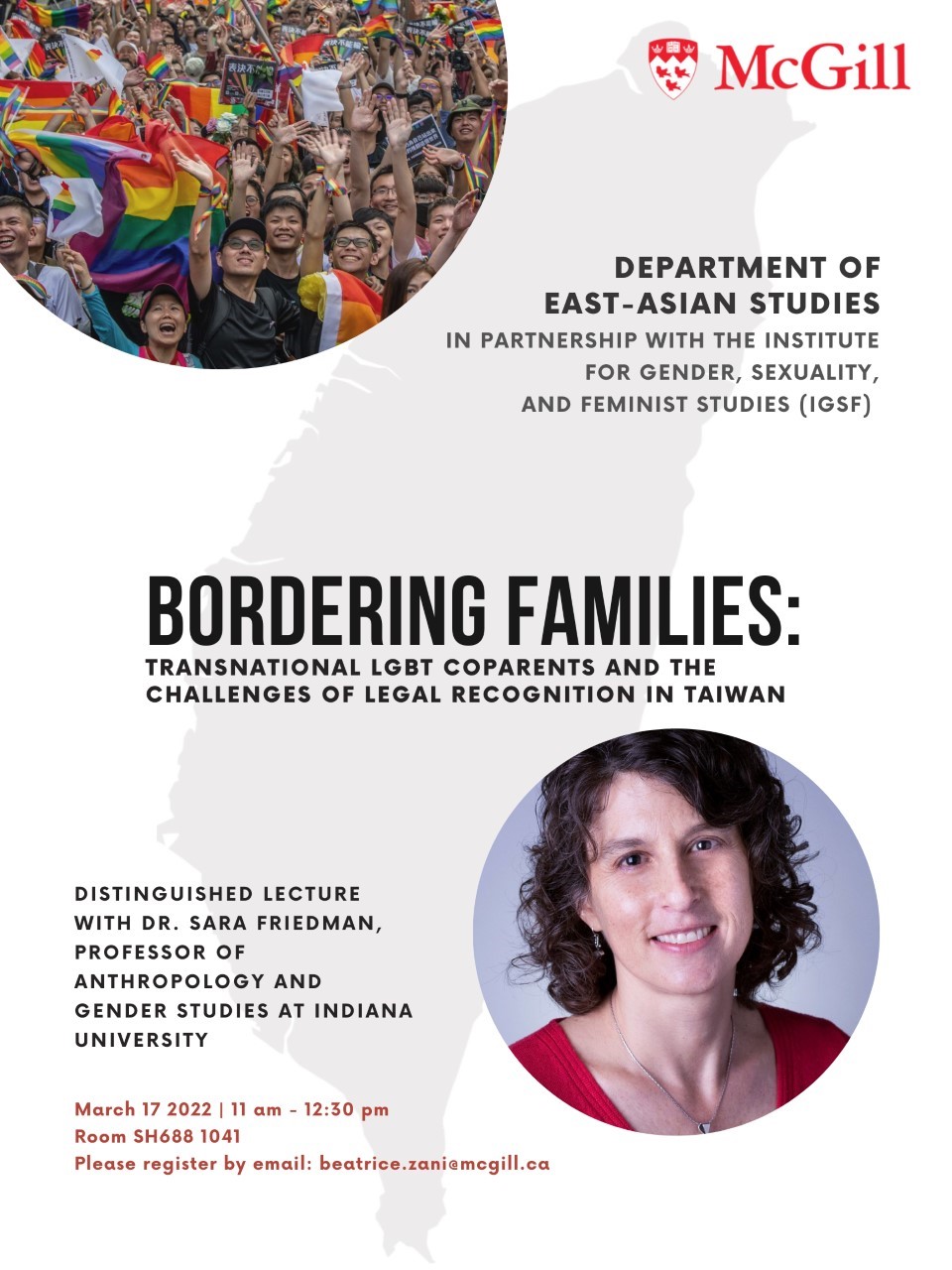Taiwan Studies Lecture at McGill University Explored Transnational LGBT Co-parents & the Challenges of Legal Recognition in Taiwan

On March 17, 2022, the Department of East Asian Studies of McGill University in Canada hosted the annual Distinguished Lecture of Taiwan Studies. Dr. Sara Friedman, Professor of Anthropology and Gender Studies at Indiana University of the United States was invited to give a lecture on her research. Dr. Friedman’s scholarship focuses on the intersection between people’s intimate life and the political and legal environment they live in, and this includes LGBT childbearing and family formation practices in Taiwan. Dr. Friedman has spent a lot of time in Taiwan and speaks fluent Chinese.
Her lecture—Bordering Families: Transnational LGBT Coparents and the Challenges of Legal Recognition in Taiwan—was the first live event organized by the Department of East Asian Studies, since the beginning of the COVID-19 pandemic. Staff and students from the Department of East Asian Studies and the Institute of Gender, Sexuality and Feminism, as well as members of the general public, registered to attend in person.
Taiwan’s widely acclaimed 2019 legalization of same-sex marriage has given the benefits of legal recognition to many LGBT couples and parents. Nevertheless, as Dr. Friedman explained, others continue to face obstacles to legal marriage, or to being able to conceive or adopt children, or to legal recognition as a family unit. She used the metaphor of a border for such legal recognition and related social recognition: giving legitimacy and recognition to some, while effectively denying others basic rights to a shared family life.
Dr. Friedman talked about how forming and living in such families and couples involves crossing multiple kinds of borders, from laws reflecting traditional heterosexual couples, as the norm, and social and cultural norms that have the effect of distinguishing between different types of families, considering some more valid. This also divide families from within—because LGBT individuals are also members of their separate individual families.
She discussed the real-life experiences of LGBT couples with children, based on many years of ethnographic research with LGBT parents and LGBT rights organizations. She also addressed the specific challenges experienced by transnational LGBT coparents in Taiwan. They are in a precarious position regarding the law, dealing with government bureaucracies, and even domestic LGBT communities. Transnational LGBT co-parenting couples struggle to be recognized (and supported) as spouses, parents, immigrants, and families. They are denied legal rights enjoyed by their domestic counterparts and they experience what Dr. Friedman called “a form of temporal bordering”: they experience their lives as being limited to the present, unable to orient their families toward the future and make plans together.
This Taiwan Studies lecture was a wonderful opportunity to get insight into the social, political, familial, and cultural issues impacting individuals in Taiwan living in queer families and as transnational LGBT couples